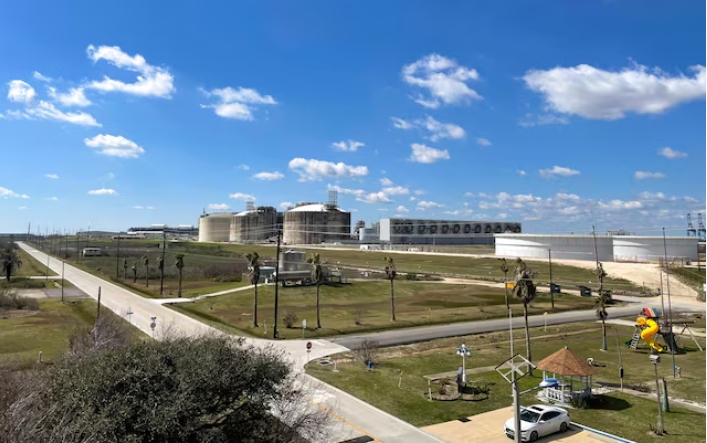
Freeport started taking in small amounts of gas again on Thursday after power generators consumed a daily record amount of gas on Tuesday to keep air conditioners humming on the hottest day so far this summer.
Front-month gas futures for August delivery on the New York Mercantile Exchange fell 6.1 cents, or 2.6%, to settle at $2.268 per million British thermal units (mmBtu), their lowest close since May 10.
That price drop also kept the front-month in technically oversold territory for a third day in a row.
The U.S. Energy Information Administration (EIA) said energy firms added 65 billion cubic feet (bcf) of gas into storage during the week ended July 5.
That was more than the 55-bcf build analysts forecast in a Reuters poll and compares with an increase of 57 bcf in the same week last year and a five-year (2019-2023) average rise of 57 bcf for this time of year.
That build boosted the amount of gas in storage to around 19% above normal levels for this time of year.
Before the latest storage build, traders noted that injections were smaller than usual for eight weeks in a row because several producers cut output earlier in the year after futures prices dropped to 3-1/2-year lows in February and March.
Higher prices in April, May and June prompted some producers, including EQT (EQT.N), opens new tab and Chesapeake Energy (CHK.O), opens new tab, to return to the well pad. But with prices now down about 12% so far in July, energy traders say it will be interesting to see whether drillers will keep boosting output over the next month or two.
EQT is the nation's biggest gas producer, and Chesapeake is on track to become the biggest after its planned merger with Southwestern Energy (SWN.N), opens new tab.
Even though power generators were burning near record amounts of gas to keep air conditioners humming during a brutal heat wave, those gas burns were slightly depressed because roughly 1.3 million homes and businesses were still without power in Texas on Thursday in the wake of Hurricane Beryl.
At its peak Beryl, which hit Texas on Monday, knocked out power to over 2.7 million customers.
SUPPLY AND DEMAND
Financial firm LSEG said gas output in the Lower 48 U.S. states rose to an average of 102.1 billion cubic feet per day (bcfd) so far in July, up from an average of 100.2 bcfd in June and a 17-month low of 99.5 bcfd in May. U.S. output hit a monthly record high of 105.5 bcfd in December 2023.
Meteorologists projected weather across the Lower 48 states would remain mostly hotter than normal through at least July 26.
With hotter weather expected next week, LSEG forecast average gas demand in the Lower 48, including exports, will rise from 106.3 bcfd this week to 106.6 bcfd next week. The forecast for next week was lower than LSEG's outlook on Wednesday.
Gas flows to the seven big U.S. LNG export plants fell to 11.9 bcfd so far in July after Freeport LNG in Texas shut ahead of Hurricane Beryl on Sunday, down from 12.8 bcfd in June and a monthly record high of 14.7 bcfd in December 2023.